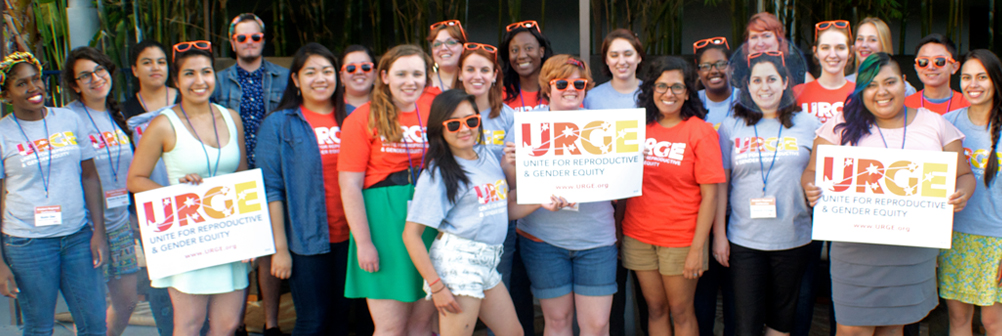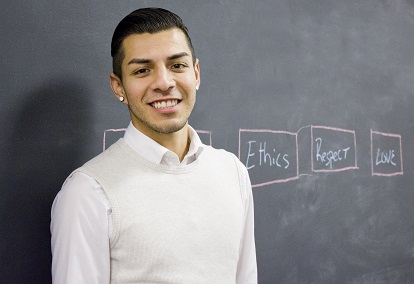Latin@s to Watch out for: Marco Antonio Quiroga
As we approach the end of Hispanic Heritage Month, URGE and National Latina Institute for Reproductive Health will be highlighting fierce young Latin@s that are doing amazing social justice work.
Organization or Movement: National Field Officer, Immigration Equality
Twitter handle: @IEquality
Not every Latin@ identifies as “Hispanic”, how do you identify and what is your heritage?
I was born in Peru, grew up undocumented in Florida, and am now a DACA recipient. Like so many people, I am part of a mixed-status family: my brother is a citizen, my sister also qualified for DACA, my other brother fell victim to deportation, and my mother remains undocumented.
I am an out and proud gay man! I identify as an empowered young gay man of color.
Is there a Latin@ leader you look up to, if so who? If not, why not?
I look up to my mother, Rosario. She was a victim of domestic abuse, she struggled for more than two decades as a domestic worker in the shadows, she lost her youngest son to deportation, and she has overcome so much adversity. She turned the pain into action, and is now an organizer with DREAMers Moms in Florida. She works to bring justice to our community. My mother is who motivates me to make a difference for all vulnerable and marginalized members of our community.
What does it mean to be Latin@ in the United States right now?
Everyone’s experience is different. Queer Latin@s have a unique experience of coming out and facing the struggles we face as a double minority. The common struggle that joins us is the fear we all experience of rejection: be it family, church, your peers, or society as a whole.
Latin@ members of the lesbian, gay, bisexual, and transgender community, particularly recent immigrants, are often doubly marginalized, more likely to be kicked out of their homes and face higher barriers to achieve a quality education and employment. There is a real opportunity for us to rise up and empower our community members…that is a mutual responsibility we all have.
As we know, Latin@s are not a monolithic group– we are diverse in a multitude of ways. What other identities/struggles do you identify with and what do you think other Latin@s should be focusing on this next year?
Though not all Latin@s are immigrants, the Latin@ community is disproportionately impacted by the broken immigration system, and our LGBT immigrant community is dramatically affected by inequity in U.S. immigration law. Each day we are making extraordinary progress in the Latin@ community, but there is still much work to be done: health inequities, educational and social-economic disparities, and discriminatory laws that promote racial profiling and voter suppression that restrict our chances of becoming full participating members of our democracy.
I am one of over 267,000 undocumented LGBT immigrants in our country. We are a community that is relegated to living in the shadows and closets. We often fall victim to abuse and exploitation and deserve a humane immigration reform. We built this country and our families are deeply interwoven in the fabric of what makes America great. The dysfunctional immigration system is a stain on our history – preventing us from having access to the opportunities that make our country great. This remains one of the largest challenges our community faces.
What is your vision for the the Latin@ community in the future– how we are seen and treated, how we show up and participate and issues we care about?
As an organizer who directly serves the LGBT immigrant community as an advocate for a humane immigration reform, I am fortunate to honor my full identity and utilize my unique experiences in the fight for the justice and dignity our community deserves.
I encourage all LGBT Latin@s to be empowered by their uniqueness – to embrace and love all parts of your identity. Be true to yourself, you can break down the walls of adversity that affect our community.


